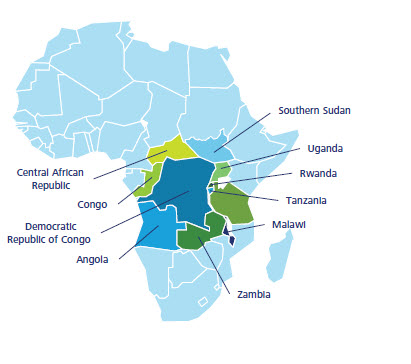E.S.P. Conflict Minerals Statement
At Express Systems & Peripherals, we apply our core values to our business activities every day: Honesty and courage in our dealings with customers and suppliers around the world, personal accountability and a relentless pursuit of service excellence. Consistent with our core values and company history, Express recognizes that we have a responsibility not to support or contribute to the violence and human rights violations associated with the mining of certain minerals in Central Africa described as the “Conflict Region”

‘Conflict Minerals’ refers to minerals or other derivatives (specifically, Tin, Tantalum, Tungsten, and Gold, also known as 3TG) mined in the eastern provinces of the Democratic Republic of the Congo (DRC) and in the adjoining countries where the revenues of the 3TG minerals may be directly or indirectly financing armed groups engaged in civil war resulting in serious social and environmental abuses. In July 2010, the United States passed the Dodd-Frank Financial Reform & Consumer Protection Act, section 1502(b) requiring all US public companies and their suppliers to disclose the chain of custody usage of conflict minerals.
Under the law, companies would be required to submit an annual conflict minerals report to the SEC if: (a) they are required to file reports with the SEC under the Exchange Act of 1934 and, (b) conflict minerals are necessary to the functionality or production of a product that they manufacture or contract to be manufactured. That statement contains two separate - but critical concepts: the purpose of the conflict mineral in the product/process, and the control that the company exerts over the manufacturing process/specifications.
A company would be deemed to contract an item to be manufactured if it:
- Exerts any influence over the manufacturing process; or,
- Offers a generic product under its own brand name or a separate brand name (regardless of whether the company has any influence over the manufacturing process) and the company contracted to have the product manufactured specifically for itself.
- This language implies that some retailers who are not themselves manufacturers are likely to be subject to the audit and disclosure requirements.
A company is considered to be “contracting to manufacture” a product if it has some actual influence over the manufacturing of that product. This determination is based on facts and circumstances, taking into account the degree of influence a company exercises over the product’s manufacturing.
A company is not be deemed to have influence over the manufacturing if it merely:
- Affixes its brand, marks, logo, or label to a generic product manufactured by a third party.
- Services, maintains, or repairs a product manufactured by a third party.
- Specifies or negotiates contractual terms with a manufacturer that do not directly relate to the manufacturing of the product.
Companies subject to the SEC reporting requirement would be required to disclose whether the minerals used in their products originated in the DRC or adjoining countries (as defined above). The law mandates that this reporting be submitted/made available annually.
While Express Systems & Peripherals is not subject to SEC reporting, Express Systems & Peripherals fully supports this legislation and its position is to avoid the use of conflict minerals.
Express Systems & Peripherals does not procure 3TG minerals directly from mines or smelters; nevertheless, in order to comply with the applicable SEC rules and, just as importantly, to adhere to our company values, Express Systems & Peripherals has begun to embark upon the process of working with our suppliers to ensure that no conflict minerals will be used in our products. Express Systems & Peripherals is adopting standards in line with the EICC/GeSI and OECD Standard of Diligence, regarding our process to obtain chain of custody declarations from all Express Systems & Peripherals sourced and managed suppliers ensuring transparency in our supply chain.
We encourage our suppliers to adopt similar policies and management systems with respect to Conflict Minerals and to drive those efforts throughout their supply chain to ensure that the specified metals are being sourced only from (1) mines and smelters outside the “Conflict Region” or (2) mines and smelters within the Conflict Region which have been certified by an independent third party as “conflict free.”